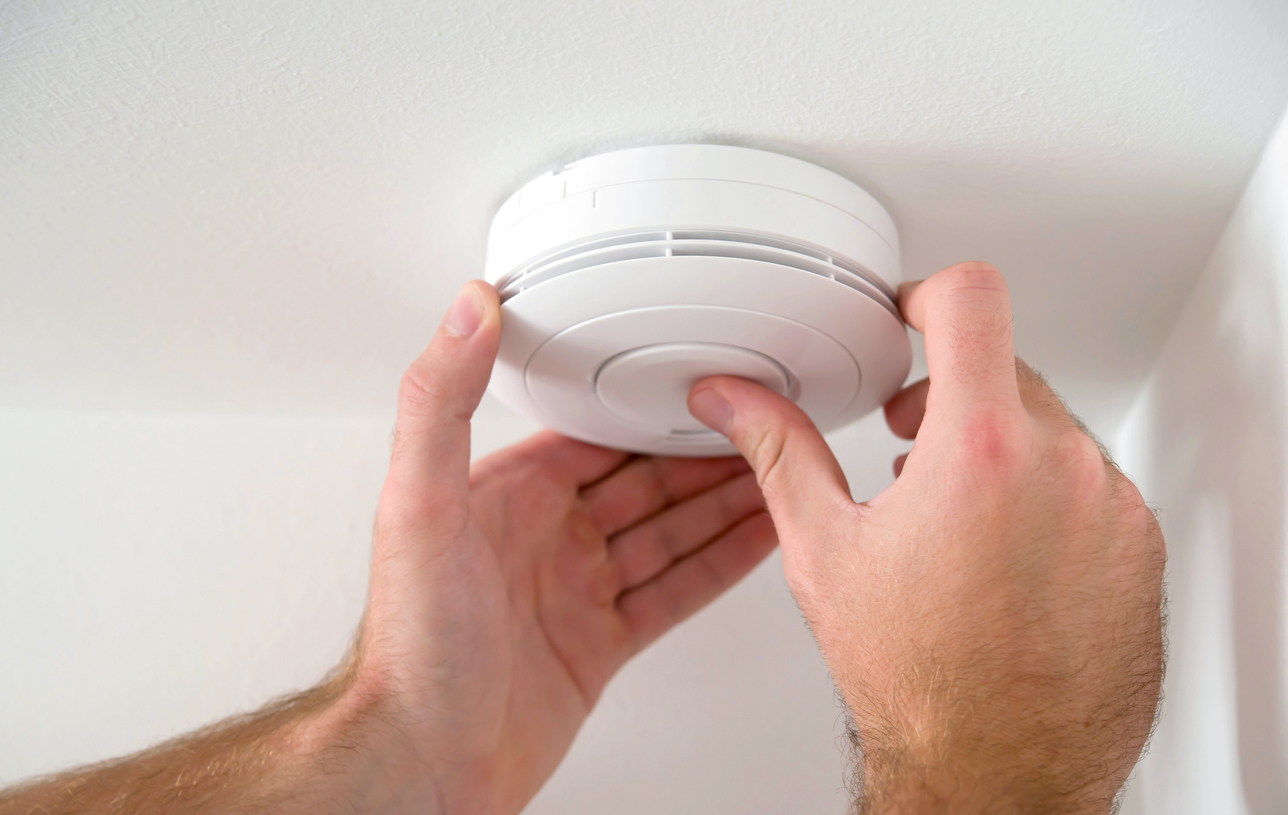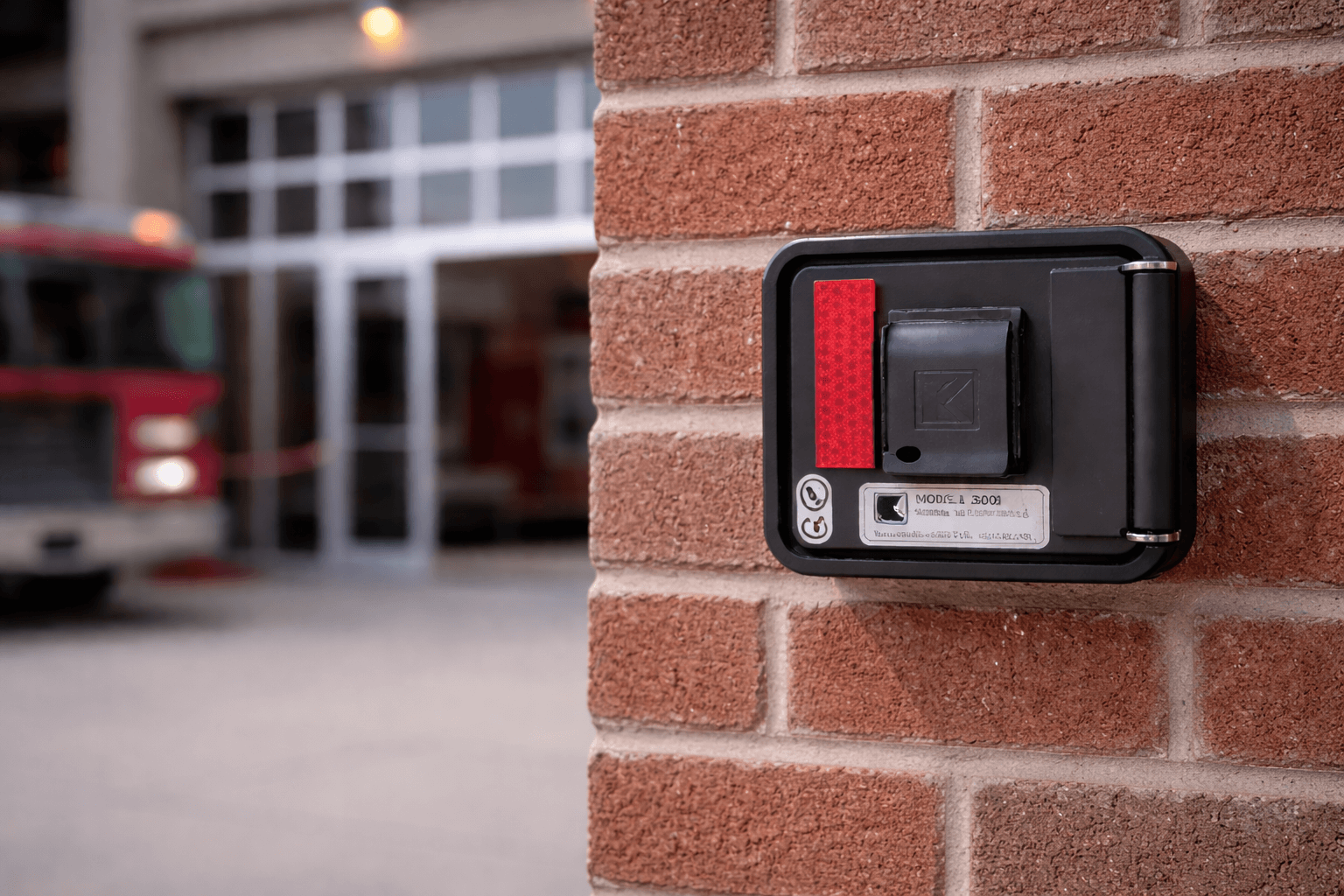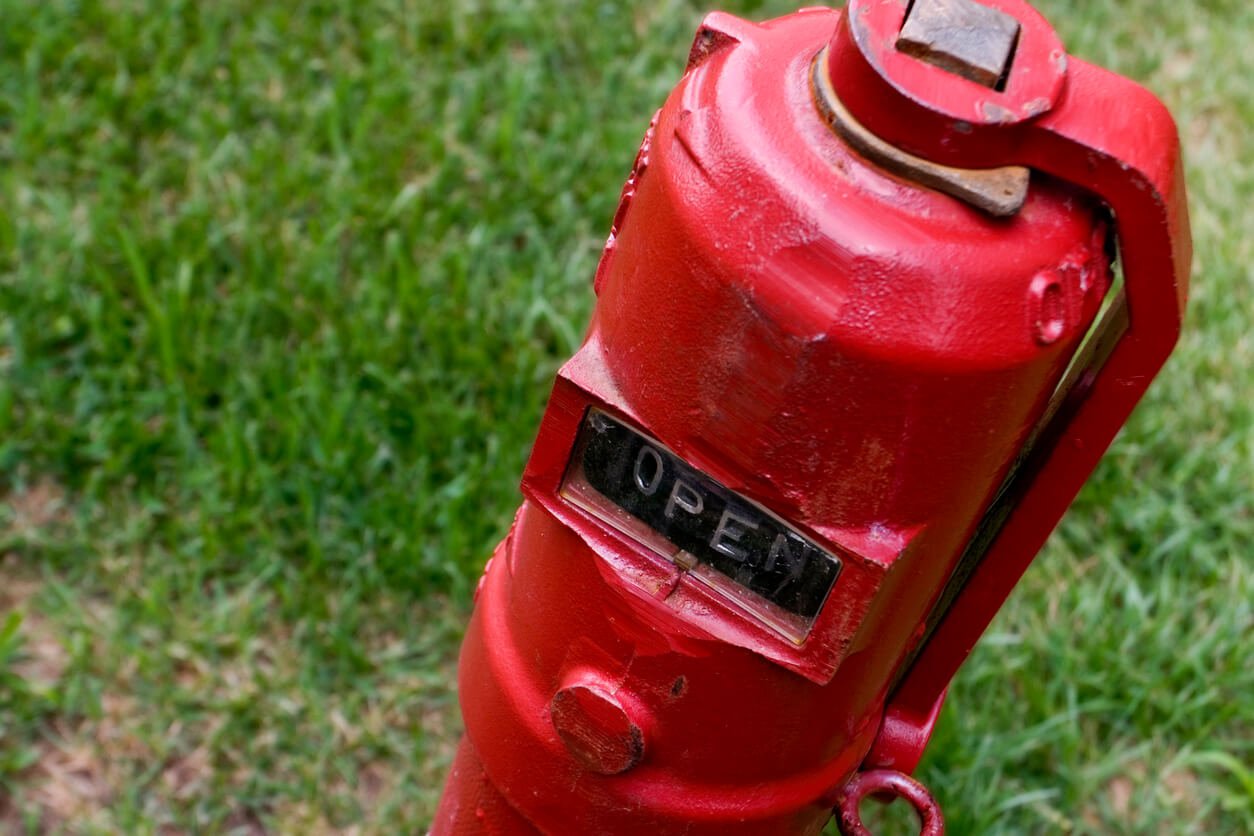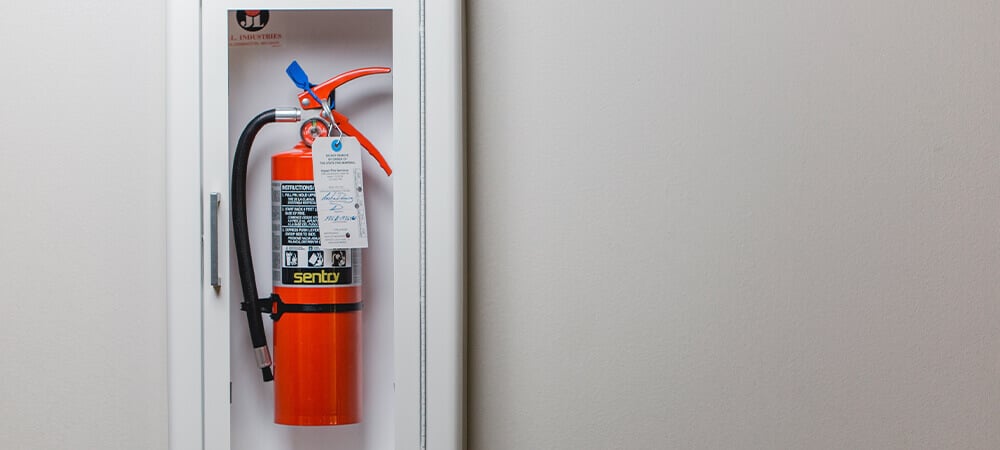Most Common Commercial Smoke Detector Beeping Patterns
- 3 consecutive beeps = Fire/smoke detection alert requiring immediate evacuation
- Every 30 seconds = Device malfunction or end-of-life indicator
- Every minute = Low battery warning in commercial fire alarm systems
- Random patterns = Environmental interference or electrical connection issues
Understanding these patterns helps property managers respond appropriately and maintain tenant safety.
It's 2 PM on a Tuesday, and you're reviewing quarterly maintenance reports when a persistent chirping echoes through your office building's hallway.
One of your tenants calls within minutes, asking about the "annoying beeping sound" coming from the smoke detector outside their suite.
By 4 PM, you've received three more calls about the same issue from different floors.
Sound familiar? This scenario plays out in commercial buildings every day, creating a cascade of problems that extend far beyond simple noise complaints.
When smoke detectors beep intermittently throughout the day, property managers face immediate tenant dissatisfaction, potential liability concerns, and operational disruptions that can impact business productivity.
These seemingly minor alerts often signal underlying issues with your building's fire safety systems that, if left unaddressed, can compromise the safety of occupants and expose your organization to significant regulatory and financial risks.
So why are your smoke detectors beeping when everything is seemingly business as usual?
Let’s find out.
Key Takeaways
- Different frequencies indicate specific issues from low batteries to actual fire conditions, enabling appropriate response protocols for your commercial property.
- Dust accumulation, humidity fluctuations, and chemical contamination cause most false alarms.
- Smoke detectors become less reliable after 8-10 years, and mixing outdated components with newer technology can cause compatibility issues that weaken overall fire protection.
- Preventive maintenance is more cost-effective than emergency repairs and helps ensure code compliance while reducing liability for property managers.
- Complex commercial systems require specialized diagnostic equipment and regulatory knowledge that only certified professionals can provide effectively.
Why Does A Smoke Detector Beep?
Smoke detectors are designed with multiple alert systems to communicate different types of issues to building occupants and maintenance staff.
Unlike residential units that may have simpler notification patterns, commercial smoke detection systems typically feature sophisticated diagnostic capabilities that provide specific information about system status and potential problems.
The most common reasons for smoke detector beeping include:
- Low battery warnings
- End-of-life notifications
- Environmental interference
- System malfunctions
- Maintenance alerts
Each type of issue produces distinct beeping patterns that serve as diagnostic tools for property managers and maintenance professionals. Modern commercial smoke detectors also integrate with building management systems to provide real-time status updates and alert notifications.
Here’s how to decode what the “beeps” are telling you.
Smoke Detector Beeping Patterns and Frequencies: What Each Means
Commercial smoke detectors communicate through distinct beeping patterns, each designed to convey specific information about the device's status or detected conditions.
Learning to interpret these audible codes enables property managers to respond appropriately and efficiently to different situations.
Why Does My Smoke Detector Beep 3 Times?
Three consecutive beeps usually signal smoke or fire detection. This is the highest alert level and demands immediate action.
In commercial buildings, this signal often triggers building-wide evacuation procedures and automatic notification to emergency services through central station monitoring systems.
The three-beep pattern may also occur during routine testing procedures or when environmental conditions temporarily interfere with the detector's sensors.
However, property managers should always treat this signal as a legitimate fire alarm until the cause is definitively identified and resolved.
False alarms caused by cooking activities, steam, or construction dust should be addressed to prevent desensitization among building occupants.
Why Does My Smoke Detector Beep Every Minute?
A single beep every minute typically indicates a low battery in battery-powered or backup smoke detectors. This alert provides early warning before the detector loses power, giving property managers time to replace the battery.
In commercial applications, this pattern may also indicate communication issues between the detector and the central fire alarm panel.
Addressable fire alarm systems use this frequency to report trouble conditions such as wiring problems, ground faults, or device malfunctions that require professional diagnosis and repair.
Why Does My Smoke Detector Beep Every 30 Seconds?
Beeping every 30 seconds typically indicates a malfunction within the smoke detector itself or a problem with its connection to the fire alarm system. This pattern often occurs when detectors reach the end of their operational life, usually after 8-10 years of service, and need replacement to maintain reliable fire protection.
Environmental factors such as excessive dust accumulation, humidity levels outside normal operating ranges, or temperature extremes can also trigger this beeping pattern.
Commercial buildings with HVAC systems that create air circulation patterns may experience dust buildup that interferes with photoelectric or ionization sensors, requiring more frequent cleaning and maintenance.
Why Does My Smoke Detector Beep Randomly?
Random or intermittent beeping patterns often indicate environmental interference or equipment aging issues. These unpredictable alerts can be particularly disruptive in commercial settings where consistent background noise levels are important for productivity and tenant satisfaction.
Power fluctuations, electromagnetic interference from other building systems, or loose electrical connections commonly cause random beeping.
In older buildings, voltage drops during peak electrical demand periods may trigger intermittent alerts from smoke detectors with sensitive power monitoring circuits.
Most Common Reasons Your Smoke Detector Is Beeping
Let’s get into the top reasons your smoke detector keeps chirping.
It Has A Low Battery
Battery-related beeping is one of the most common—and often misunderstood—issues in commercial fire protection systems.
Commercial smoke detectors require specific battery types designed for extended operation and reliable performance under varying environmental conditions.
Standard alkaline batteries are often insufficient, as detectors must maintain stable power despite temperature shifts, humidity, and interferences from building systems.
Because of this, lithium batteries typically provide superior performance and longevity in commercial applications, though they require proper disposal procedures due to environmental regulations.
Sometimes, even after you change the battery, the beeping may persist. This occurs because many commercial smoke detectors feature memory circuits that retain trouble conditions until manually reset through specific procedures.
Additionally, some detectors require a 24-hour initialization period after battery replacement to complete self-diagnostic routines and establish stable operating parameters.
Hardwired smoke detectors with battery backup present additional complexity, as low battery warnings may indicate problems with the backup power system rather than the primary electrical connection.
There Are Changing Environmental Factors
Commercial buildings create unique environmental challenges that can trigger false alarms and erratic beeping patterns in smoke detection systems.
Dust accumulation represents the most prevalent environmental factor affecting smoke detector performance. HVAC systems, construction activities, and normal occupancy generate airborne particles that infiltrate detector chambers and interfere with optical sensors.
Humidity fluctuations common in commercial buildings like restaurants, laundromats, and manufacturing sites can cause condensation within detector housings, leading to corrosion of electrical components and erratic signal transmission.
Temperature extremes beyond the typical 32-100°F operating range can cause thermal stress in smoke detector components, resulting in false alarms or complete system failures. Loading docks, mechanical rooms, and areas near large windows or skylights frequently experience temperature variations that challenge detector performance.
Chemical contamination from cleaning products, paint fumes, or industrial processes can interfere with smoke detector sensors and trigger false alarms. Many commercial cleaning chemicals contain volatile organic compounds that mimic smoke particles when detected by ionization chambers.
The System is Worn Out
Smoke detectors have finite operational lifespans, typically ranging from 8-10 years depending on environmental conditions and usage patterns.
As detectors age, internal components degrade, sensors lose sensitivity, and electronic circuits become unreliable, resulting in frequent false alarms or intermittent beeping patterns that indicate end-of-life conditions.
Interconnected fire alarm systems present additional complexity when individual detectors reach replacement age. Older detectors may lose communication with central panels, creating trouble conditions that manifest as persistent beeping alerts. Compatibility issues arise when mixing detector generations within the same system, as newer addressable devices often cannot communicate effectively with legacy analog equipment.
Wiring deterioration in older commercial buildings compounds aging detector problems. Corroded connections, damaged conductors, and ground faults create intermittent electrical issues that trigger random beeping patterns.
Professional fire protection companies can assess system age, evaluate component compatibility, and develop replacement strategies that ensure seamless integration with existing fire alarm infrastructure while maintaining continuous protection during upgrades.
Professional Troubleshooting and When to Call Experts
While basic troubleshooting steps like battery replacement or visual inspections can resolve simple issues, complex commercial fire alarm systems require professional expertise to ensure proper diagnosis and code-compliant solutions.
Property managers should contact qualified fire protection professionals when:
- Beeping persists after basic maintenance
- Multiple detectors exhibit problems simultaneously
- When system integration issues affect building-wide fire protection performance
Professional fire protection companies possess specialized diagnostic equipment that can identify communication failures, measure sensor sensitivity levels, and evaluate system performance against current safety standards.
These tools enable technicians to pinpoint intermittent problems that might not be apparent during visual inspections, preventing recurring issues that disrupt building operations and compromise occupant safety.
Plus, they’ll know the specific testing requirements and parameters across local fire codes, NFPA standards, and insurance requirements to ensure your building remains compliant.
Ensure Reliable Fire Protection for Your Commercial Property
Don't let persistent smoke detector beeping compromise your building's safety or disrupt your tenants' productivity.
The fire protection experts at Impact Fire understand the unique challenges facing commercial property managers and offer comprehensive solutions designed to keep your fire alarm systems operating reliably year-round.
Contact Impact Fire today to schedule a professional assessment of your smoke detection system and discover how our preventive maintenance programs can eliminate nuisance alarms while ensuring full compliance with fire safety regulations.







